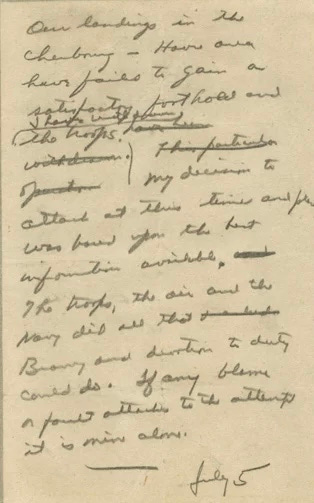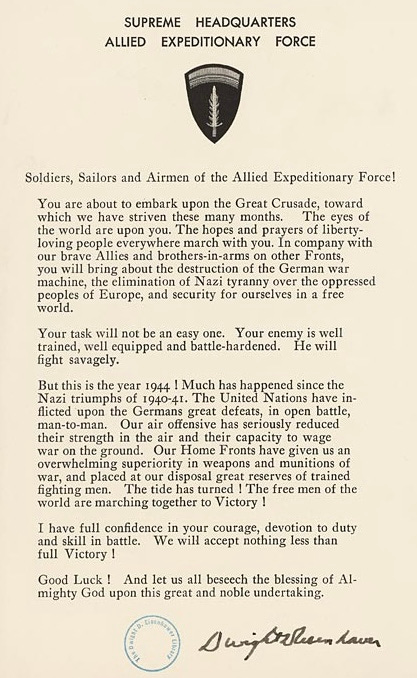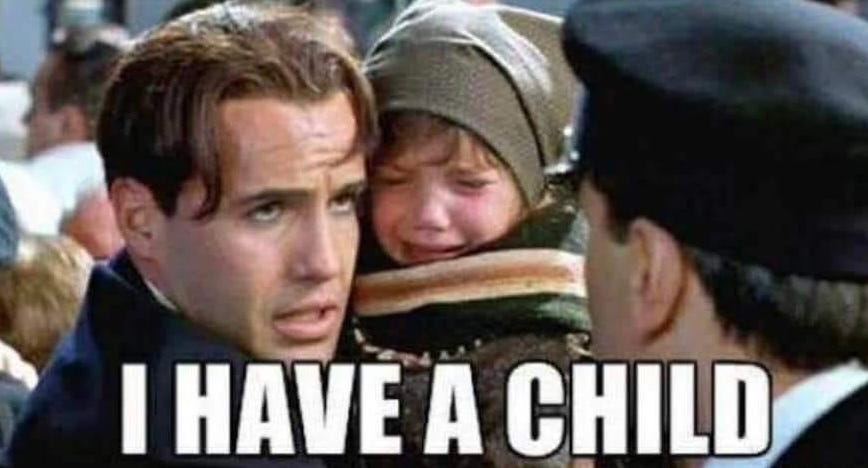

Discover more from The Obsolete Man
I was reminded recently of that emergency broadcast incident in 2018 that caused the people of Hawaii to be mistakenly alerted to an impending missile attack. For the sake of perspective, I think it’s a good idea to occasionally picture ourselves in such a position. How would we react?
Suppose for a moment that the Cold War had actually gone hot. That the United States and The Soviet Union finally stopped rattling sabers and started exchanging nuclear strikes. We all know that for the average citizen it would be the end of the world. Little would survive in the aftermath of an all-out exchange between the two countries.
What do you think you might do if those air-raid sirens started going off and you got word that the world would be over in a few minutes?
Would you tell your family that you love them?
Pray?
Cry and panic?
How about turning on CNN?
No?
Well, if for some inexplicable reason CNN would have been your response, they had you covered.
In 1980, CNN prepared this odd video ahead of the network’s launch. It was meant only to be played in the event of nuclear armageddon.
CNN Owner Ted Turner apparently felt this performance would be a comforting thing for people to have playing in their living rooms while they awaited their imminent death. While it is a strange choice, I have to admit that I can't really think of a song that would be appropriate for a moment like that. Does one exist? Nearer My God to Thee isn't exactly uplifting, but is uplifting what we’re looking for in that moment? This weird and somber video got me thinking about the ways other people have faced or prepared for disasters.
L-Day
Think of the task that was set before Dwight D. Eisenhower in 1944. As the Commander of the Allied forces in WW2, he was responsible for the success or failure of the entire allied invasion of Europe. Imagine the burden of that responsibility. Consider the gravity of the moment and the implications of a failure to execute that mission. Countless lives, the war in Europe, the future of the United States and its allies, and Eisenhower's entire life and career hinged on the success of the Normandy Invasion. Ahead of the operation he released the following statement to the troops who would shortly be landing in France:
As we know, the operation was a success. But what if it hadn't been? What If D-Day was not remembered as a pivotal victory which began the turn of the tide in the war, but instead as a miserable and embarrassing failure? Eisenhower certainly considered that possibility and drafted a statement to use in the event of a negative outcome.

While we can definitely respect the man's direct admission of failure and acceptance of full responsibility, it would do little to alleviate the awful implications of the loss.
What else would there be to do, though? What can you even say in a situation like that?
One Giant Leap
The Apollo Missions offer another example of this type of dilemma. A successful moon landing would be a shining moment in American history and in the history of mankind. Man walks on the moon. A new age of humanity begins...but what if the Apollo 11 mission had failed and the astronauts had died? It was a very real possibility. No one knew for sure that a landing could be made at all. Knowing that he might very well have to deliver awful news to the country, President Nixon prepared a speech to address the potential catastrophe.
IN EVENT OF MOON DISASTER:
“Fate has ordained that the men who went to the moon to explore in peace will stay on the moon to rest in peace.
These brave men, Neil Armstrong and Edwin Aldrin, know that there is no hope for their recovery. But they also know that there is hope for mankind in their sacrifice.
These two men are laying down their lives in mankind’s most noble goal: the search for truth and understanding.
They will be mourned by their families and friends; they will be mourned by their nation; they will be mourned by the people of the world; they will be mourned by a Mother Earth that dared send two of her sons into the unknown.
In their exploration, they stirred the people of the world to feel as one; in their sacrifice, they bind more tightly the brotherhood of man.
In ancient days, men looked at stars and saw their heroes in the constellations. In modern times, we do much the same, but our heroes are epic men of flesh and blood.
Others will follow, and surely find their way home. Man’s search will not be denied. But these men were the first, and they will remain the foremost in our hearts.
For every human being who looks up at the moon in the nights to come will know that there is some corner of another world that is forever mankind.”
That would have been fun to deliver. But here again, what else would there really be to say? It's just one of those moments in life where there is nothing to be done, no move to make. Acknowledge and accept the situation. It's all there is to do at that point.
Arm’s Length
Maybe it’s easier to maintain such composure if it isn’t you that’s dying on the beaches of Normandy or the surface of the moon, though.
For those that find themselves in the midst of a disaster and staring down certain death or defeat, reactions will vary greatly. There are many instances throughout history which show a range of behaviors from bravery, cowardice, denial and madness. Being on the scene is going to provoke much different responses from the people involved than those we get from our leaders. How should we judge the reactions of people in such situations? Is it even possible to do so honestly without having been there ourselves?
Tip of the Iceberg
Since Ted Turner chose Nearer My God to Thee as the song for us all to hear as we met our death, let’s use the sinking of the Titanic as an example. Specifically, let’s consider the band from the Titanic, who famously continued to play their music as the ship sank into the North Atlantic. Most people will remember this anecdote as portrayed in the 1997 James Cameron film, where the band is depicted playing Nearer My God to Thee.
The scene shows the band playing the hymn as they meet their fate in a solemn, dignified manner. Though it makes for a touching moment in the film, I doubt the people scrambling for their lives on a sinking ship were in a mental space that allowed them to stop and appreciate such a thoughtful selection.
As it turns out, while the band did indeed continue to play as the ship sank, they didn't play Nearer My God to Thee. In an effort to keep the passengers from panicking the band apparently played ragtime music, Sensing that an upbeat number was appropriate.
Picture that.
Imagine yourself on the deck of that sinking ship, frantically trying to find a lifeboat, or at least something that floats.
People are desperate.
Screaming.
Crying.
Praying.
Fighting to get their children to safety.
A nightmare.
Now imagine that you look up from all of that chaos surrounding you to see an elderly British man just sitting there, playing an annoying ragtime song on his clarinet and smiling wistfully at his band mates. Would you be anything less than infuriated at those idiots?
We can imagine panicking in such a situation. We can also imagine keeping it together and trying to muster some courage as things go south. We probably don’t often imagine dying while being really annoyed though.
To put that into perspective, let's consider a modern version of that Titanic band. You've probably seen those viral videos where the cast of a Broadway show is stuck in an airport or on a plane that can't take off for hours, so they "entertain" their fellow stranded passengers with show tunes.
Now imagine yourself on that same plane as the engines fail.
Oxygen masks drop.
Panic sets in.
The plane begins plummeting toward the earth.
Would you really want to be subjected to some overly-enthusiastic Drama major's rendition of The Circle of Life at that moment?
Sometimes a quiet and dignified acceptance of the things we can’t control is best. Unfortunately, others may not allow it when the time comes.
We would like to imagine ourselves meeting death with a measure of dignity or calm, but we fail to factor in the behavior of others around us, as well as how our own survival instincts may surprise us.
We can’t truly know how we will react to a tragedy until we live it. It seems that our proximity to the disaster itself plays a big role in our reaction, though. However much we may admire Eisenhower or Nixon’s assumption of responsibility and stoic attitudes, we do have to keep in mind that they maintained a certain detachment from these events themselves.
Before applauding a leader’s response to a tragedy we must remember their detachment from the situation. Conversely, before judging the behavior of those engulfed in tragedy, we must remember our own detachment from the situation. In their shoes, we might very well be the ones freaking out and acting less than dignified.
We should try to be more forgiving in either case.
Subscribe to The Obsolete Man
“I'm a human being, I exist. And if I speak one thought aloud that thought lives, even after I'm shovelled into my grave.”








This reminds me of the role "Swan Lake" plays in Russia when power is changing hands unexpectedly:
"First, a bit of history about why so many historians and Eastern Europeans took to Twitter to pray for Swan Lake's swift appearance. To see dancing swans is, to use @asiktspolitruk's words, 'the equivalent of white smoke from the Sistine Chapel's chimney in Rome announcing a new Pope.' The broadcast would indicate that the end of Vladimir Putin was near."
"When Leonid Brezhnev died in 1982, state-run television broadcast a full-length Swan Lake in lieu of a death announcement. The same footage was aired after the deaths of Yuri Andropov in 1984 and Konstantin Chernenko in 1985. In her book Like a Bomb Going Off: Leonid Yakobson and Ballet as Resistance in Soviet Russia, Janice Ross suggests that these screenings of the Russian ballet were used as a stalling tactic, allowing Soviet leadership time to plan while 'soothing the masses.' Ballerinas would dance and the public would wait, calmly, applauding the screen."
"The same technique was used in 1991 when communists attempted to overthrow Mikhail Gorbachev. Swan Lake aired for three days straight while the public waited it out. In 2011, the Russian national television channel Kultura aired a rebroadcast of Swan Lake to commemorate the attempted coups' 20th anniversary."
https://www.newsweek.com/putin-dead-pay-attention-when-russia-starts-broadcasting-swan-lake-1707162
(That video is a stark display of just how long ago, in every sense, 1980 was.)
This is your best piece yet. It brought up a mess of questions: What did the stars look like the night the Titanic went down? Exactly like they will tonight. What did the sky look like as they were getting off the trains at Treblinka? Exactly like it will today.
I try to remember that it’s ALL on the menu. There is no rule of the universe that says we all won’t die in maximum fear and maximum pain. At a more mundane level, there is no guarantee that major parts of our lives will be not merely imperfect, but deeply disappointing or painful.
And we could be there on the plane, and there’s no more time to do anything about it, and somebody is singing Oklahoma. We could be there in our deathbed at 99 and still bearing the hurt, and some vapid ‘80s hair metal tune is playing on the oldies station at the nurses’ desk down the hall. It’s all on the menu.
I am a fatalist. (I think I’m using the term correctly, but I did not study philosophy.) I see the disappointment, the hurt, the pointlessness on offer, and I know I’ll just have to bear my share. And then I won’t exist for all the rest of time. The only salve is friendship and love, and the bearing of responsibility. You do your bit and hope you did it well. I hope the world is better in my wake, but I’ll never know.
Don’t be a dick on purpose.
We could be whistling past the graveyard as a society, that’s definitely on the menu! What will we be thinking as it all comes apart? Is it already sinking and we just can’t feel it yet? I have the sense that it’ll happen in the classic way: very slowly, then all at once. Will I become a monster just to survive, as ultimately futile as that is? Will I become a perpetrator of atrocity and horror, will I usher others to their end in maximum fear and maximum pain for the chance to see one more second?
Oklahoma where the blah blah blah blah blah blah blah!